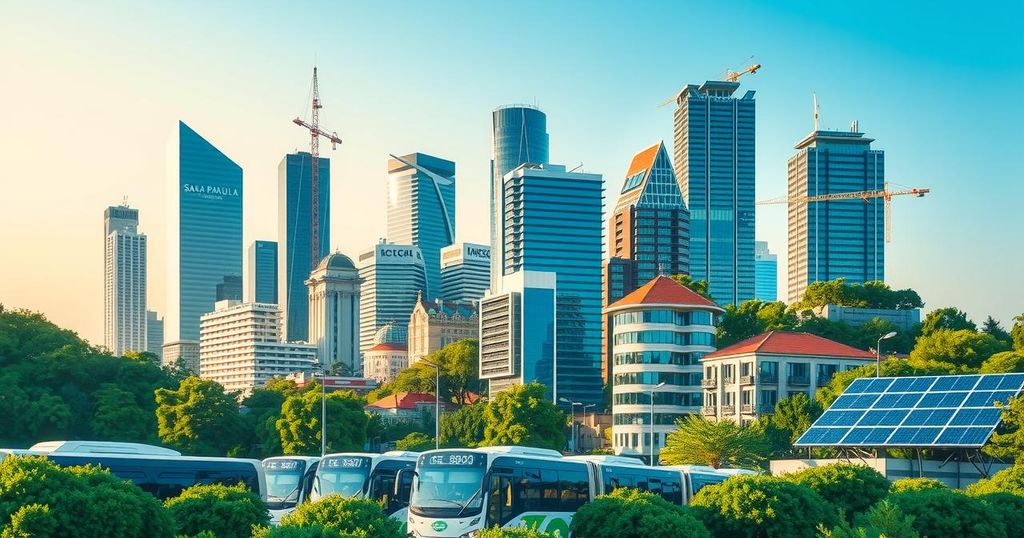Cars
ASIA, AUTOMOTIVE INDUSTRY, BANK OF CHINA LTD, BRAZIL, BYD, BYD CO, BYD CO. LTD, CAIXIN, CHINA, FOREIGN INVESTMENT, HANGZHOU HIKVISION TECHNOLOGY CO, HANGZHOU HIKVISION TECHNOLOGY CO. LTD, HIKVISION, INDUSTRY, LTD, MEXICO, NORTH AMERICA, NUNES, RICARDO NUNES, ROBOTICS, SAO PAULO, SOUTH AMERICA, TRADE, U. S, UNITED STATES, WASHINGTON, ZHEJIANG DAHUA TECHNOLOGY CO
Marcus Chen
0 Comments
São Paulo Mayor Sees Trade War as Opportunity for Brazil
São Paulo Mayor Ricardo Nunes announced that the ongoing trade tensions between the U.S. and China afford Brazil opportunities in clean energy and urban development. The city aims to electrify its bus fleet by 2032 and has implemented extensive AI surveillance technology, capturing over 1,000 fugitives. Partnerships with Chinese companies, including financial negotiations for electric buses, are fundamental to this initiative.
In a significant statement during an economic summit in Shanghai, São Paulo Mayor Ricardo Nunes emphasized that the ongoing trade tensions between the United States and China have created valuable opportunities for Brazil. He articulated that the trade frictions are paving the way for Brazil, particularly São Paulo, to forge collaborations with China in vital sectors such as clean energy, public transport, and urban infrastructure.
Nunes specifically noted that the city’s ambitious goal to electrify its entire bus fleet by 2032 aligns strategically with partnerships with companies like BYD, a leading Chinese electric vehicle manufacturer. With the help of significant financial backing from Chinese investors, São Paulo aims to transform its public transit system into a greener and more sustainable network.
Moreover, the Mayor highlighted the city’s technological advancements, citing the installation of over 25,000 AI-enabled surveillance cameras provided by Chinese firms. These systems have proven effective in enhancing public safety, successfully aiding in the capture of more than 1,000 fugitives in just six months.
As the trade landscape continues to shift, both banks and technology firms from China, such as the Bank of China and Hangzhou Hikvision Technology, are poised to play crucial roles in São Paulo’s development plans. Nunes mentioned that negotiations are underway for a 100 million yuan ($14 million) credit line with the Bank of China to support the procurement of electric buses as part of these ambitious urban plans.
The synergy between São Paulo’s electrification goals and China’s technological expertise positions Brazil as a key player ready to seize opportunities in an evolving global trade framework. This move may set a precedent for other regions seeking innovative solutions under current international economic pressures.
In conclusion, Mayor Ricardo Nunes of São Paulo has articulated that the trade war between the U.S. and China presents a unique chance for Brazil. The city is actively pursuing partnerships in clean energy and public transport, aiming for a fully electric bus fleet by 2032 with support from Chinese firms. Additionally, the integration of AI surveillance technology is enhancing public safety. This strategic approach may not only transform São Paulo but also underscores Brazil’s potential to fill gaps in the global trade landscape.
Original Source: www.caixinglobal.com




Post Comment